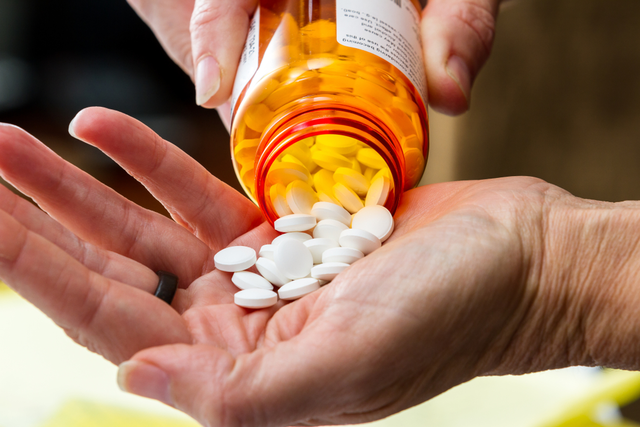Unofficial data show that there are at least 250,000 people with Parkinson’s disease in the country. According to the World Health Organization (WHO), more than 6.3 million people are affected with the disease, making it the second most common neurodegenerative disease in the world. Therefore, and due to the symptoms that significantly compromise the quality of life of these people, it is urgent to search for forms of treatment that bring more well-being to patients and their caregivers. Currently, the use of medicinal cannabis in Parkinson’s disease is an option that is being studied a lot and shows promising results. This is what you will see in this article.
Cannabis in Parkinson’s disease: what is the potential of this treatment?
Parkinson’s disease (PD) patients using medical cannabis report having perceptions of improvement in parkinsonian symptoms. In a questionnaire with more than 1,000 participants, 40% said they felt reduced pain and muscle cramps when including the plant in the treatment, 20% showed improvement in relation to stiffness, freezing, tremors, depression, anxiety and restless legs syndrome. Overall, 54% of people who used CBD orally reported improvement, as did 68% of those who inhaled THC-containing cannabis.
>> Check the results at: Cannabis in Parkinson’s Disease: The Patients’ View
Below are other recent studies that reinforce the role of cannabis as a therapeutic adjuvant in Parkinson’s disease:
Neuroprotection
An interesting work from this year, 2021, highlights the potential of cannabinoids in preventing or delaying neuronal death in three neurodegenerative diseases: Parkinson, Alzheimer’s and Huntington. The authors highlight the discovery of the activation of microglial cells with neuroprotective phenotype, through the action of cannabinoid derivatives, via CB2 endocannabinoid receptors.
>> Read more at Recent Advances in the Potential of Cannabinoids for Neuroprotection in Alzheimer’s, Parkinson’s, and Huntington’s Diseases
This would be one of the potential mechanisms of action that explain the benefits of using cannabinoid derivatives in the context of neurodegenerative diseases.
Reduction of anxiety and tremors
The use of CBD can reduce anxiety and tremor amplitude in Parkinson’s patients. That is what a randomized, double-blind and placebo-controlled clinical trial found in submitting 24 patients to mock tests for public speaking. Data such as heart rate, systemic blood pressure and tremor frequency and amplitude were collected. The Visual Analogue Mood Scale (VAMS) and the Self-Assessment Scale were also applied.
The single administration of CDB at a dose of 300 mg reduced anxiety in patients with PD, as well as reduced tremor amplitude in an anxiety situation. as recorded by the accelerometer.
Several other works have already demonstrated the anxiogenic potential of cannabidiol in other pathological contexts. See more in this post where we talk about Prescriptive concepts and anxiety: main concepts for treatment..
Sleep Improvement
Sleep disorders are common in Parkinson’s patients. REM sleep behavior disorder can cause nightmares and active behavior during sleep. This 2014 work evaluated the effects of CBD on these symptoms in four people with Parkinson’s. All patients had an immediate and substantial reduction in the frequency of events related to sleep disturbance, without experiencing side effects.
Psychosis Management
Chronic administration of levodopa and dopaminergic agonists in the treatment of Parkinson’s Disease can lead to overstimulation of dopaminergic receptors, as well as other neurotransmission systems, and lead to psychotic symptoms. The management of psychosis in PD is challenging and different pharmacological interventions are often needed to achieve satisfactory results. One alternative that has proven to be viable is medicinal cannabis. In 2009, a pilot study was carried out with six outpatients with Parkinson’s, who had had episodes of psychosis for at least 3 months. All received CBD orally for 4 weeks in addition to usual therapy. There was a significant decrease in psychotic symptoms and no adverse effects were observed.
>> Learn more: Cannabidiol for the treatment of psychosis in Parkinson’s disease
As in Parkinson’s disease, medicinal cannabis demonstrates therapeutic adjuvant potential in several other neurological disorders. Discover the therapeutic effects of cannabinoid derivatives on neuropathic pain, autistic spectrum disorder, multiple sclerosis, Alzheimer’s disease and epilepsy.
References
Chagas MH, Eckeli AL, Zuardi AW, et al. Cannabidiol can improve complex sleep-related behaviours associated with rapid eye movement sleep behaviour disorder in Parkinson’s disease patients: a case series. J Clin Pharm Ther. 2014;39(5):564-566. doi:10.1111/jcpt.12179
de Faria SM, de Morais Fabrício D, Tumas V, et al. Effects of acute cannabidiol administration on anxiety and tremors induced by a Simulated Public Speaking Test in patients with Parkinson’s disease. J Psychopharmacol. 2020;34(2):189-196. doi:10.1177/0269881119895536
PARKINSON. Hospital Israelita Albert Einstein. Disponível em <https://www.einstein.br/doencas-sintomas/parkinson>. Acesso em 22 de julho de 2021.
Pérez-Olives C, Rivas-Santisteban R, Lillo J, Navarro G, Franco R. Recent Advances in the Potential of Cannabinoids for Neuroprotection in Alzheimer’s, Parkinson’s, and Huntington’s Diseases. Adv Exp Med Biol. 2021;1264:81-92. doi:10.1007/978-3-030-57369-0_6
SENRA, Dante. Saiba mais sobre o Parkinson, 2ª doença neurodegenerativa mais comum. Uol, 2019. Disponível em <https://www.uol.com.br/vivabem/colunas/danta-senrra/2019/11/02/saiba-mais-sobre-o-parkinson-2-doenca-neurodegenerativa-mais-comum.htm>. Acesso em 22 de julho de 2021.
Yenilmez F, Fründt O, Hidding U, Buhmann C. Cannabis in Parkinson’s Disease: The Patients’ View. J Parkinsons Dis. 2021;11(1):309-321. doi:10.3233/JPD-202260
Zuardi AW, Crippa JA, Hallak JE, et al. Cannabidiol for the treatment of psychosis in Parkinson’s disease. J Psychopharmacol. 2009;23(8):979-983. doi:10.1177/0269881108096519




